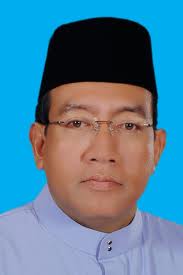MANY parents complain about the declining standard of English among teachers of English these days. There is some basis to this derision. Are Teaching of English as a Second Language (TESL) graduates competent in the language? Unfortunately, there are some who are not up to the mark for some obvious reasons.
The term "ketua pengawas" was translated by the English teacher as "head prefect". The teacher holds a master's degree in TESL.
Another teacher could hardly differentiate between the past tense and the present perfect tense. She habitually used the past tense in sentences that required the use of the perfect tense form.
One teacher could only tell the students what good writing is all about when teaching, but she herself could not write a simple paragraph of her own in proper English.
TESL students, unlike students of English literature, do not actually do English at the university or college. They are assumed to be proficient in the language. A TESL course focuses more on the pedagogical aspect of teaching a language -- the theories of teaching and learning.
It is assumed that those applying to do TESL are already proficient in English by just looking at their good grades at the Sijil Pelajaran Malaysia level, although this is somewhat undependable.
Obtaining 1A or 2A in English at the SPM level these days does not reflect students' competence in the language. Gone are the days when As were scored by the finest students among them all.
One way to ensure that TESL teachers are proficient in English is to rigorously assess their spoken and written English before they are given the training in pedagogy.
In other words, for candidates to undergo training in TESL, they should first present themselves well both in the spoken and written English. This would help produce English teachers who can become role models to students.
Another point to consider in schools is to ensure that teachers do not skip classes to attend in-service courses. In-service courses for teachers should be confined to non-schooling days because the disruption of teaching does not help students.
If proficient English teachers are hard to come by, the Education Ministry should consider employing retired English teachers. These experienced teachers do not have to attend in-service courses and they practically stay put with the students throughout the year.
These teachers should also not be burdened with other school duties but employed solely to teach.
The pride of our nation is having Bahasa Malaysia as the national language. Malaysians should also bear in mind that being proficient in a foreign language works to their advantage. We need to be proficient in English in today's increasingly competitive world. To achieve this, we need teachers who are proficient in the language, dedicated and who can spend more time with students.
The New Straits Times Online: 24 Oktober 2008


1 ulasan:
Dear Dr M A Nair
Hopefully this message will reach you somehow or rather.
I do not see anything wrong to translate "Ketua Pengawas" to "Head Prefect". Definitely it is better than "Chief Prefect" [as similar to Chief Clerk = Ketua Kerani]. It is also better than "Lead Prefect" [as similar to Lead Stewardess = Ketua Pramugari].
In the old days some schools even use the term School Captain which I think is not suitable at all.
anonymous can be contacted at "abma_btg@yahoo.co.uk"
Catat Ulasan